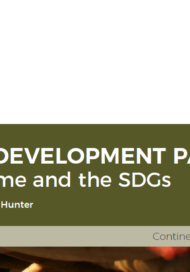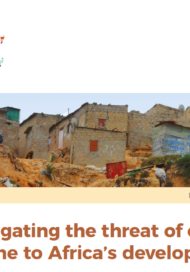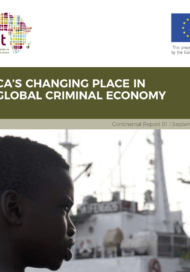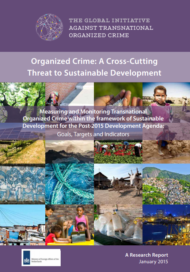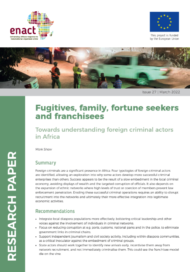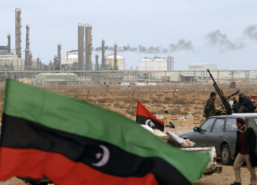Posted on 14 Feb 2018
Organised crime presents a manifold threat to sustainable development. This is recognised by theSustainable Development Goals and Agenda 2063. However, policy statements fail to translate to the implementation framework in a systematic way, and tend to focus on the fight against organised crime at the sectoral level.
Development actors need to understand not only how organised crime will undermine their objectives, but also that development itself presents opportunities for organised crime to flourish.
In considering the likely trajectory of SDG achievement, it becomes beneficial to examine how different states, regions and continents may use the SDG framework to mobilise their development strategies. In the context of Africa, the clearest statements of intent can be found in Africa’s development Agenda 2063, which was adopted by the African Union (AU) in a process conducted in parallel to the SDGs in 2015. Both of these frameworks refer to themselves as aspirational, setting broad-reaching, comprehensive and ambitious targets. Both frameworks also acknowledge the interdependence between development and security, noting that one cannot be achieved without the other.
As Africa focuses on stimulating economic growth, investment and infrastructure, the danger is that development goals will be subverted. Development actors need to both crime-proof existing interventions and ensure future investments are crime sensitive.
This report surveys the range of development impacts of organised crime in Africa, considers the statements of development priorities expressed by African states both within the SDG framework, but also through the African Union Agenda 2063. It then considers the relevant policy implications.
Key findings
- Organised crime threatens all aspects of the continent’s sustainable development.
- Too much of the response to organised crime is crafted as policies to counter specific illicit markets rather than examining the issue and its impacts holistically.
- The illicit economy can also be a source of livelihoods and a resilience strategy for the poor and vulnerable. There is thus a development paradox at play.
- Both the SDGs and Agenda 2063 emphasise economic stimulus and investment through public–private partnerships. However, organised crime reinforces negative governance patterns that create an unhealthy alliance between crime, government and business.
- Development itself comes with organised crime risks, which can facilitate the growth of illicit markets.
- If SDG goals are to be achieved, development must be crime-sensitive and crime-proof.
Organised crime as a cross-cutting threat to SDG achievement

